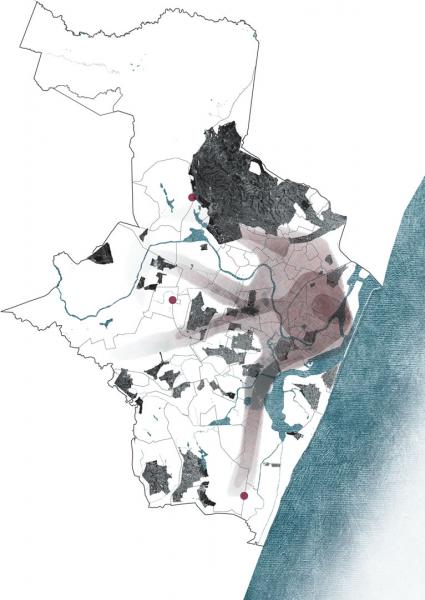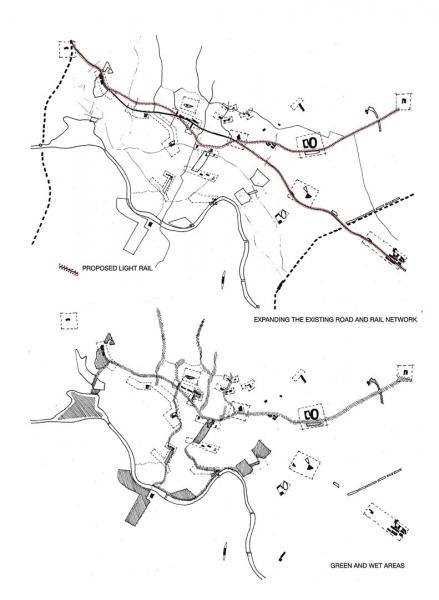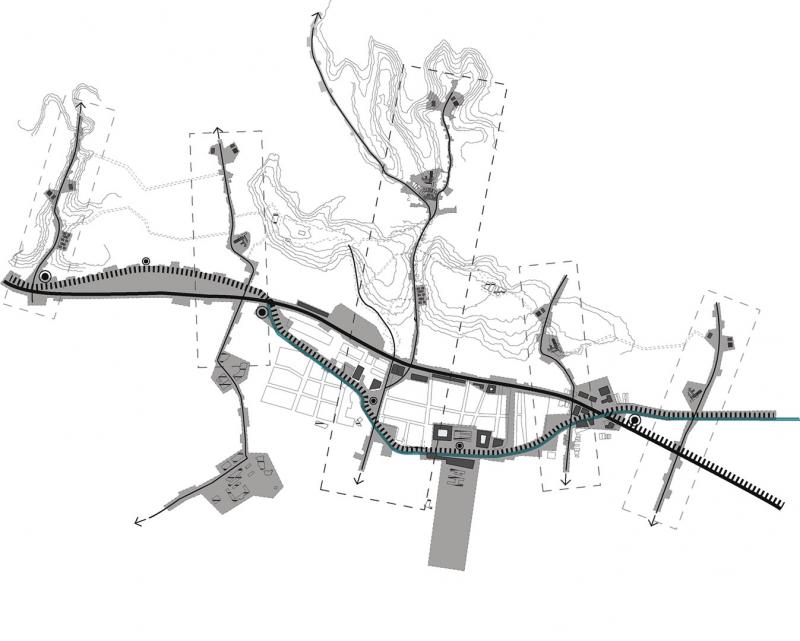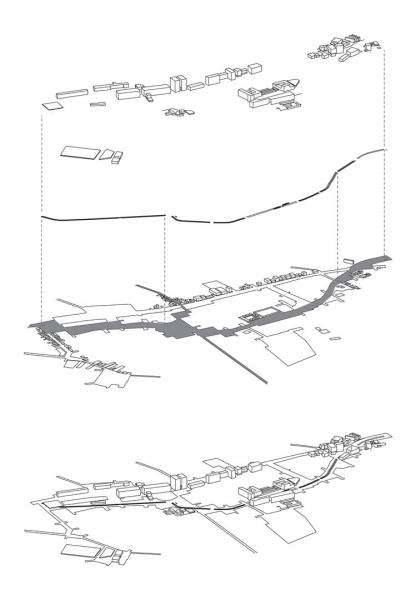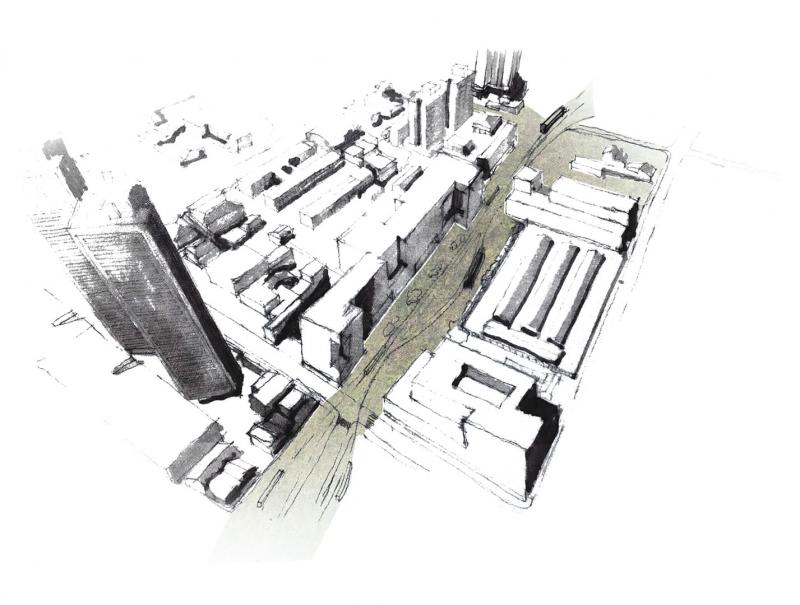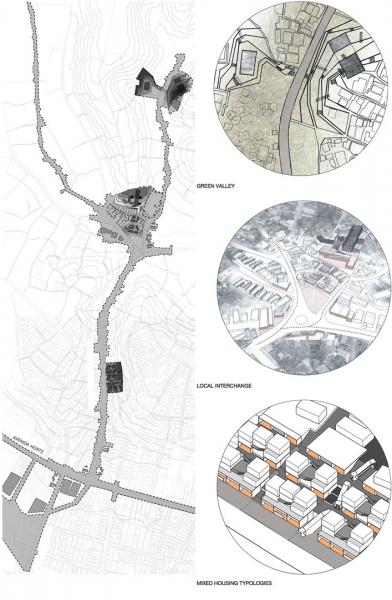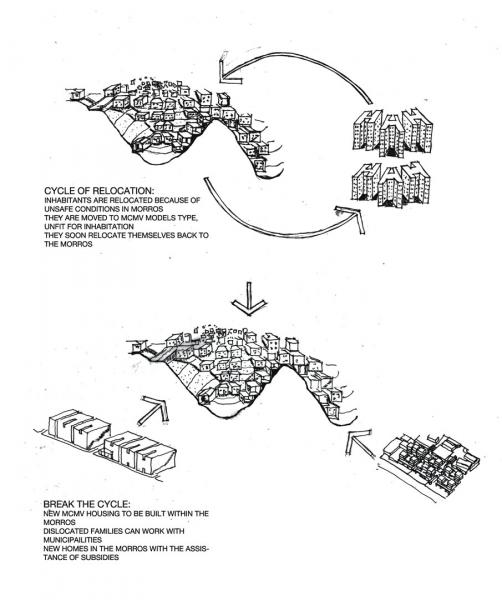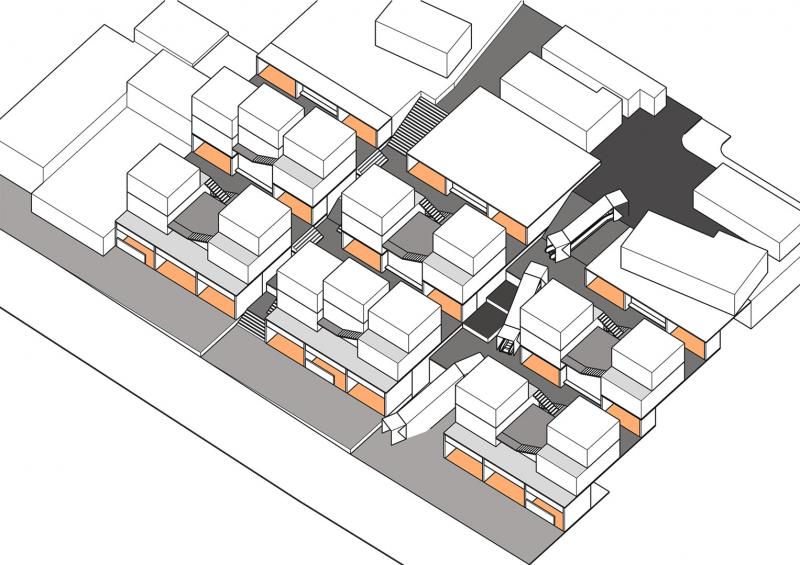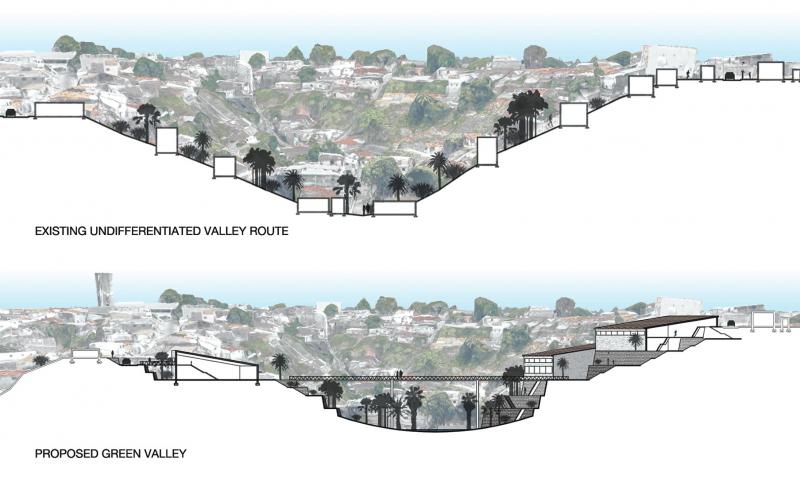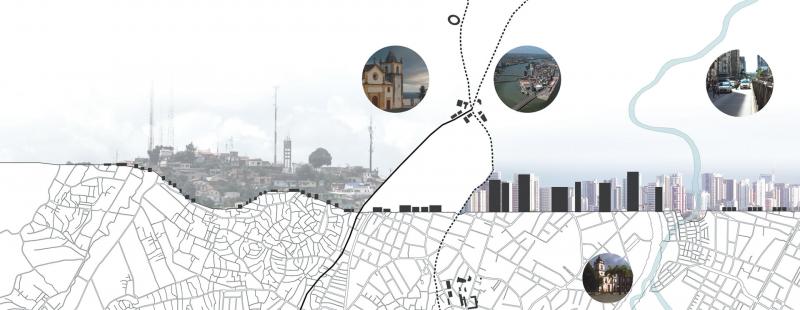Public Transport Intensity & Inequity
Recife design workshop: integrated territories.
Tutors: Alex Warnock Smith, Juliana Ribeiro Muniz
The aim is to stimulate productivity through the integration of territories that are socially and spatially disconnected, facilitating synergetic relationships across social, cultural and economic dimensions involving multiple stakeholders. By opening up different forms of accessibility, a layered mobility system has the potential to facilitate productive networks over a wider territory. An integrated spatial strategy is necessary to enhance the productive potential of the urban fabric across multiple scales.
Brazil is undergoing accelerated urbanization on the one hand, with strong conditions of informality on the other. Federal policies like Minha Casa Minha Vida and PAC have been established to support the large-scale provision of housing and infrastructure for lower income citizens to create more social and economic inclusion. Recife still falls behind the national urban population growth rate, despite significant investments in economic productivity and private housing. In order to accelerate growth and develop in a more inclusive manner, it becomes crucial to improve accessibility between the fragmented parts of the city. Rather than a retrospective exercise, spatial development should be done simultaneously with the economic, social and cultural development.
Recife Design Workshop: Social Housing and Urban Mobility
This intensive design workshop in Recife, in collaboration with the Federal University of Pernambuco, explored a study area in relation to the potential of social housing and urban mobility in urban development.
Current mass housing projects and investments in public transport in Recife offer opportunities to rethink the role of mobility and housing, strengthening spatial relations between dwelling, urban infrastructure, production and services. The aim of linking different federal and municipal tools for public investment, whilst spatially rethinking infrastructural investment, forms the basis for the four spatial explorations in the territory on both sides of the Avenida Norte, a main transport route.
We formed four groups, mixing students and teachers from both institutions, for ten days of intensive work. Each group critically interpreted the urban challenges and developed spatial responses to test strategies for development. The proposals were presented for discussion in a major debate with representatives of the existing citizens’ groups, architects and planners, officials from the City, and officials from the Federal Ministry for Cities.
We will produce a second publication from this work, following the book: “Housing as Urbanism” published from last year’s Recife design workshop.
Layered Mobility System
Spatial Strategy
Concentrated Urban Centre
Reorienting Types
Valley Proposal
Reinterpreting Minha Casa Minha Vida
Mixed Housing
Green Valley
Productive Sequences

